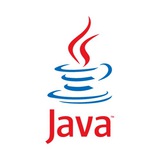tg-me.com/topJavaQuizQuestions/444
Last Update:
Understanding Java Streams and Collections
Hey everyone! 👋 Today, let’s dive into Java Streams and how they can make our lives easier when working with data collections! 🌟
What are Streams?
Streams are a powerful abstraction that allow us to process sequences of elements, like lists and sets, in a functional style. They help eliminate boilerplate code and can lead to more readable and expressive programs.
Key Benefits of Streams:
- Conciseness: Express operations like filtering and mapping succinctly.
- Parallelism: Easily perform operations in parallel for better performance.
- Pipelines: Chain multiple operations together for smoother data handling.
Basic Operation Example:
Here’s a quick example of how to use Streams to filter and collect data.
List<String> names = Arrays.asList("Alice", "Bob", "Charlie", "David");
List<String> filteredNames = names.stream()
.filter(name -> name.startsWith("A"))
.collect(Collectors.toList());
In this example, we filter names starting with "A" and collect them into a new list.
Conclusion
Using Java Streams can greatly enhance how we handle collections, making our code cleaner and more efficient. Try integrating Streams into your next project! 💻✨
BY Top Java Quiz Questions ☕️
Warning: Undefined variable $i in /var/www/tg-me/post.php on line 283
Share with your friend now:
tg-me.com/topJavaQuizQuestions/444
